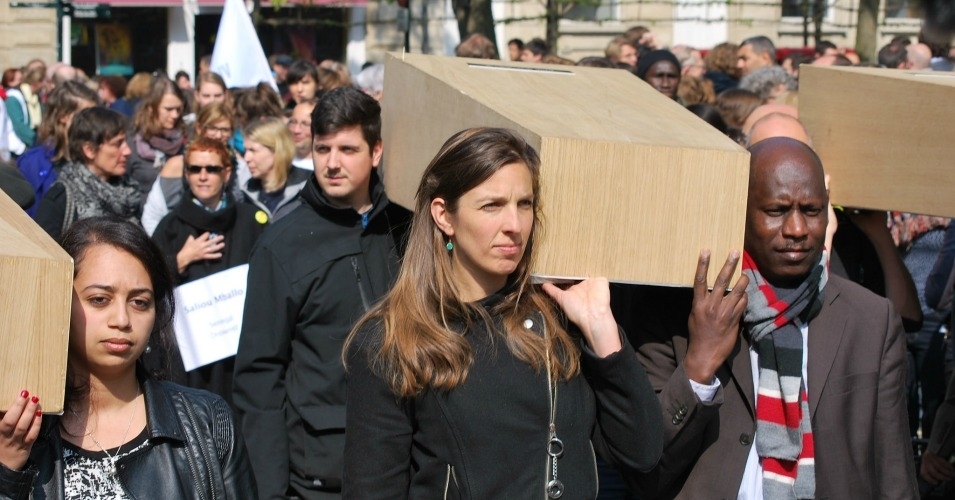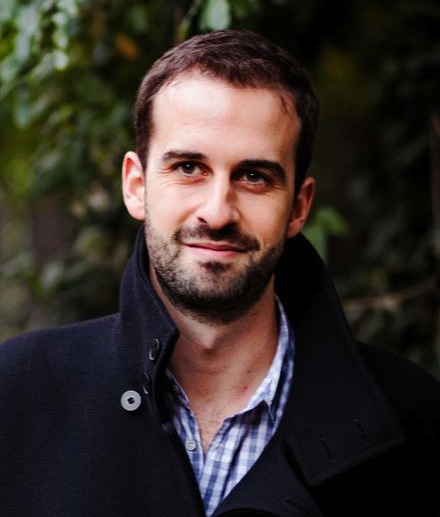
High-level panel to debate solutions to the Mediterranean refugee crisis
This high-level panel brings together experts from different countries and backgrounds, all of whom are needed to find a way out of the crisis. By drawing a clear picture of the situation, understanding what is already being done and what steps remain to be taken, we can start to find a lasting solution.
Fabrice Langrognet
A high-level international panel of experts in law, diplomacy and refugee rights will address the urgent need for a solution to Europe’s migrant crisis at a public event in Cambridge next week.
The “Drowning Humanity?” discussion, which is being organised by the Cambridge Migration Society and supported by the Gates Cambridge Trust and Gates Cambridge Scholars Support Fund, takes place on 25th June, the same day as European Union Heads of State debate the crisis at the European Council in Brussels. It will feature Nuala Mole, founder and senior lawyer at Advice on Individual Rights in Europe (AIRE); Federico Soda, Chief of Mission in Italy for the International Organisation for Migration; Kalliopi Stefanaki, protection officer and Head of the UNHCR’s Protection Unit in Greece; Wadid Benaabou, Desk Officer for Libya at the French Ministry of Foreign Affairs; and Daniela Reale from Save the Children who is also leader of the Children on the Move Global Working Group.
All the speakers can provide firsthand information and insight into current events in the Mediterranean and will discuss solutions for the migrant crisis from their various different perspectives:
Nuala Mole is a prominent lawyer specialising in asylum, immigration and human rights. She was the Director of the NGO Interights before founding the AIRE Centre, a London-based charity whose mission is to promote awareness of European law rights and assist marginalised individuals and those in vulnerable circumstances to assert those rights.
Federico Soda is Director of the International Organisation for Migration's Coordination Office for the Mediterranean, Chief of Mission for Italy and Malta and the IOM's Representative to the Holy See.
Kalliopi Stefanaki is the Head of the Protection Unit for the UNHCR in Greece. A lawyer working in the field of human rights and refugee rights since 1998, Kalliopi served in the Human Rights Department of the Greek Ombudsman's Office for eight years and has been working with UNHCR in Greece since 2006.
Wadid Benaabou is the desk officer in charge of Libya at the French Ministry of Foreign Affairs. He is also a lecturer in International Affairs at Sciences-Po Paris and has served as a magistrate at the French Court of Accounts.
Daniela Reale has been working as an Exploited Children Policy Adviser at Save the Children since 2006. She is also the current leader of the Children on the Move Global Working Group.
The event aims to allow high-ranking professionals, whose responsibilities place them at the forefront of any collective action regarding the crisis, to exchange their views with the Cambridge academic community and deepen their understanding of each other's positions and practices. In addition, it is meant to help spur future initiatives, within the University of Cambridge and academia at large, to address the refugee crisis from an academic point of view.
Fabrice Langrognet [2014], President of the Cambridge Migration Society, a Gates Cambridge Scholar doing a PhD in History and a member of the French judiciary, says: “The Mediterranean has become the place of a major humanitarian crisis. For several years, the number of migrants dying at sea while trying to reach the southern shores of the European Union has kept rising. This number is now reaching unprecedented proportions, prompting a collective understanding that, to bring this human tragedy to an end, action must be taken. Because the reasons of the phenomenon are complex, the solutions to be put in place need to be diverse, coordinated and carried out by a wide variety of actors. Sustainable efforts should be made not only to rescue the people who are in immediate danger of death in international waters, but to address the causes and consequences of their crossing. That is why this high-level panel brings together experts from different countries and backgrounds, all of whom are needed to find a way out of the crisis. By drawing a clear picture of the situation, understanding what is already being done and what steps remain to be taken, we can start to find a lasting solution.”
The high-level panel has received the generous support of the University of Cambridge, the Gates Cambridge Trust, Trinity College, the Cambridge Review of International Affairs and St John's College.
*The discussion takes place on Thursday, 25 June 2015, 5-7pm in the Bateman Auditorium, Gonville and Caius College, Cambridge, and is open to the public. Picture credit: Amnesty International, reprinted under a creative commons licence.

Fabrice Langrognet
- Alumni
- France
- 2014 PhD History
- St John's College
Before studying migration history at Cambridge, I served for almost five years as a judge in the administrative branch of the French judiciary. I specialized in immigration and asylum cases, a field I had previously discovered as a volunteer in French NGOs providing help to asylum seekers. In addition, I have also worked as a speechwriter for the President of the French Republic, as a member of the editorial board of an international affairs newsmagazine, and as an adjunct lecturer at Sciences-Po, ENS and other French universities.
After completing my Ph.D. at Cambridge (2019), I joined a Paris research lab called the Centre d'histoire sociale des mondes contemporains (University of Paris 1/CNRS) as an associate researcher. I was then a visiting researcher and Fung global fellow at Princeton University (2020-2021), before joining the University of Oxford in 2021 as a Leverhulme Early Career fellow at the Faculty of History and a William Golding JRF at Brasenose colllege. I am also a fellow at the Institut Convergences Migrations (Paris) and at the Global Public Policy Institute (Berlin).
My publications include a monograph, published in English as Neighbours of Passage: A Microhistory of Migrants in a Paris Tenement, 1882-1932 (Routledge, 2022), and in French as Voisins de passage. Une microhistoire des migrations (La Découverte, 2023).












